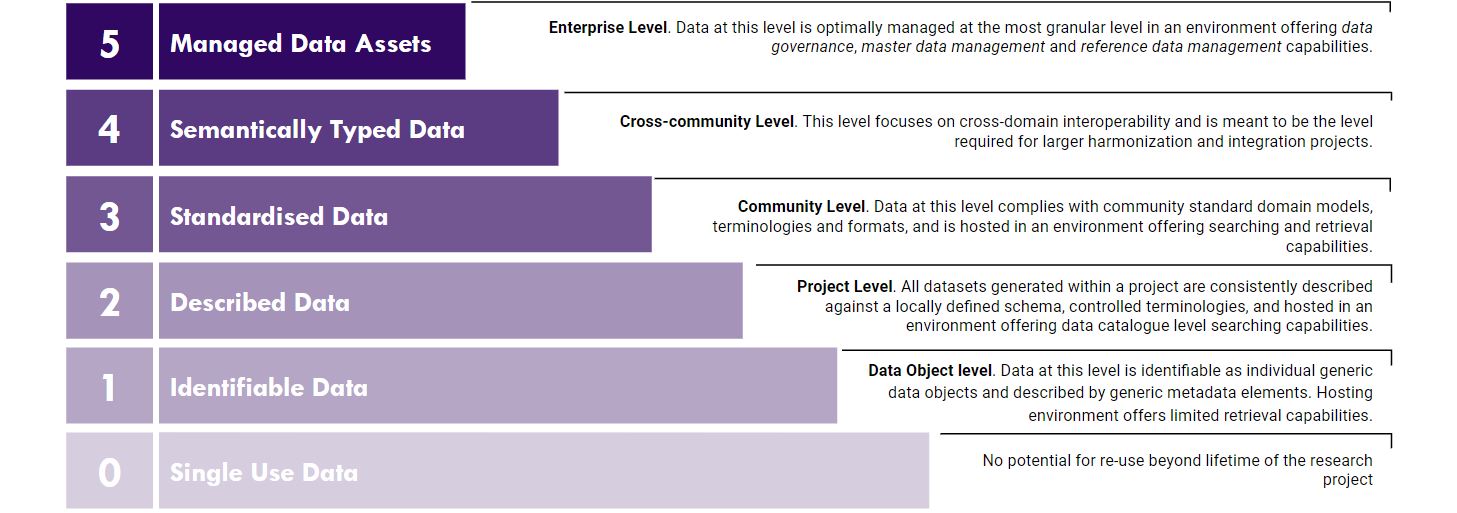FAIRplus-DSM Maturity levels
The FAIRplus-DSM model presents five levels of FAIR. Each level is characterised by increasing requirements across the three categories of the FAIR requirements. The diagram below provides a summary description and perspective for each level.
Level-1
Example Use Case: As a researcher I want to publish my analysis-related data, making them Findable, Citable and available for re-use for purpose of future analysis validation
FAIR Goals: Findability, Sharing, Publish Analysis Results, support for Reproducible results.
Level-2
Example Use Case: As a Project Data Manager/Steward/Custodian, I want to standardise all project data outputs maintaining the relationship between the various data modalities within the context of the project, to preserve the data and support multiple analyses and multiple researchers in my project
FAIR Goals: Data Exploration, Data Visualisation, Data Consolidation, Re-use: Support for multiple analyses within project
Level-3
Example Use Case: As a project consortium, we want to guarantee long term preservation of our data and to be shared with the community; to enable re-purposing of our data and the ability to integrate with other data within the same domain / subject area.
FAIR Goals: Data Integration, Data Preservation, Re-use
Level-4
Example Use Case: As a research institute, we want to build a FAIR Data Commons to be able to integrate and harmonise data of interest from different studies and different data resources for the purpose of using data in meta-analyses studies and cross-study analyses.
FAIR Goals: Meta-analyses, Cross-study/domain Data Interoperability, Data Integration and Harmonisation
Level-5
Example Use Case: As a data-driven enterprise, we want to be able to manage my research data assets for the purpose of supporting multiple researchers and implementation of common Data Governance policies.
FAIR Goals: Data Asset Management, Data Re-annotation, Data Governance
